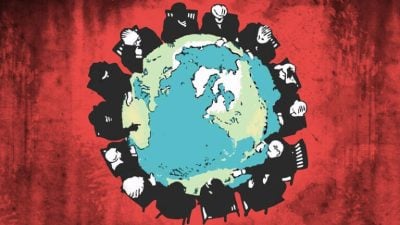The Cult of Globalism: The Great Reset and Its “Final Solution” for “Useless People”
All Global Research articles can be read in 51 languages by
activating the “Translate Website” drop down menu on the top banner of
our home page (Desktop version).
To receive Global Research’s Daily Newsletter (selected articles), click here.
Visit and follow us on Instagram, Twitter and Facebook. Feel free to repost and share widely Global Research articles.
First published on July 9, 2020
***
The idea of the Great Reset derives from the New World Order
which is still alive in the minds of the establishment or who we can
call the globalists from people like Henry Kissinger to the current US president, Joe Biden.
Of course there are many others on the top levels of the pyramid whose
ideas range from establishing a police state, to implanting microchips
the day we are born to track and trace us, to depopulating the planet. I
know it all sounds insane but that’s what the globalists have planned
for us for a very long time.
Klaus Schwab’s protégé, Yuval Noah Harari, is an
Israeli born intellectual who authored a popular bestseller titled
‘Sapiens: A Brief History of Humankind’ and is also a professor of
history at the Hebrew University of Jerusalem. Harari once asked a
disturbing question, “what to do with all these useless people?” Harari
is an intelligent man, there is no doubt about that, but his
intelligence has led him to the level of insanity.
Harari is an influential member of the World Economic Forum (WEF)
who supports the idea of creating a dystopian society managed by a
handful of globalists who will rule over every human being on earth from
the day they are born. According to Harari, planet earth is
overpopulated:
Again, I think the biggest question in maybe in economics and politics of the coming decades will be what to do with all these useless people?
The problem is more boredom and how what to do with them and how will
they find some sense of meaning in life, when they are basically
meaningless, worthless?
My best guess, at present is a
combination of drugs and computer games as a solution for [most]. It’s
already happening…In under different titles, different headings you see
more and more people spending more and more time or solving the inner
problems with the drugs and computer games both legal drugs and illegal
drugs…
They also want people to stay home connected to the Metaverse world, a
virtual reality simulation and at the same time get them addicted to
all sorts of drugs. The kind of world they are trying to create for us
is pure lunacy. Wired, a monthly magazine describes the
metaverses as a combination of the digital and physical worlds that
creates a virtual reality as in the Hollywood film, ‘Ready Player One,’ The article ‘What is the Metaverse, Exactly?’ answers that question,
“Broadly speaking, the technologies
companies refer to when they talk about “the metaverse” can include
virtual reality—characterized by persistent virtual worlds that continue
to exist even when you’re not playing—as well as augmented reality that
combines aspects of the digital and physical worlds.”
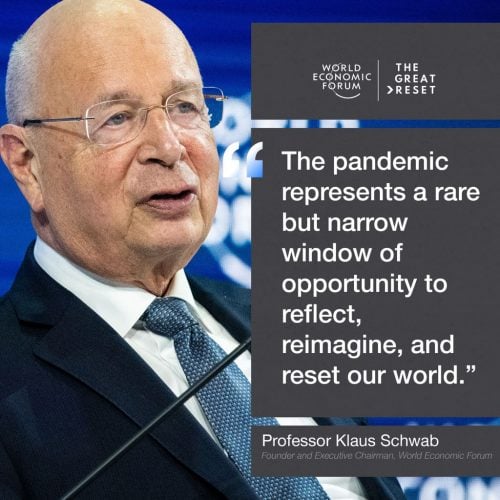 Many
other Hollywood films that are based on virtual reality in the future
includes Jumanji, Source Code, The Matrix, Total Recall, Inception, and
many others. The globalists want you to believe that a dystopic society
is in the works for us, but no worries, you will be completely happy at
least according to Klaus Schwab.
Many
other Hollywood films that are based on virtual reality in the future
includes Jumanji, Source Code, The Matrix, Total Recall, Inception, and
many others. The globalists want you to believe that a dystopic society
is in the works for us, but no worries, you will be completely happy at
least according to Klaus Schwab.
In my opinion, the notion that the human species will be living their
lives through virtual reality is far-fetched, it’s an illusion that
will take decades even centuries to accomplish and that would only
happen if we allowed it to happen.
Harari is saying that under a scientific, technocratic world order,
the state will be your sole provider for everything, so basically, he says that families are not needed in this new world they are creating for us, in other words, having a family will be a thing of the past:
After millions of years of evolution
suddenly within 200 years the family and the intimate community break,
that they collapse most of the roles filled by the family for thousands
and tens of thousands of years are transferred very quickly to new
networks provided by the state and the market, you don’t need children,
you can have a pension fund, you don’t need somebody to take care of
you, you don’t need neighbors and sisters or brothers to take care of
you if you’re sick, the state takes care of you, the states provide you
with police, with education, with help with everything
Listen to Harari’s own words in this video:
00:00
00:00
The World in Crisis: A Stakeholder Economy, the Green Agenda and Covid-19
Rahm Emanuel worked for US presidents Bill Clinton and Barack Obama under various titles, but one quote he will always be remembered for was when he said “you
never let a serious crisis go to waste. And what I mean by that it’s an
opportunity to do things you think you could not do before.” That is exactly what happened under the Covid-19 global health emergency.
Klaus Schwab, who is the original founder, and executive chairman of
the WEF published an article that outlines three basic components of the
Great Reset titled ‘Now is the Time for a ‘Great Reset,’ in the first component, they would help steer or “improve
coordination (for example, in tax, regulatory, and fiscal policy),
upgrade trade arrangements, and create the conditions for a “stakeholder
economy.”
How would this work? There are more than 195 countries in the world
meaning that all these countries would have to establish a “unified”
tax, regulatory and fiscal policy, all in sync, all with the same laws
and that would be impossible even if they tried because all countries
have different tax systems, different economies and cultures and that
will not change because of a handful of globalists with outlandish ideas
of a unified financial system they want to control for their own
benefit. It’s a ridiculous idea. In fact, more countries today are more open to imposing less taxes and regulations to
attract foreign investments to grow their economies, so the WEF ‘s
recommendations will never work, in fact its dead-on arrival.
Then there is the looming financial crisis that can ultimately force
the world into a Federal Reserve Bank “Digital Currency” known as central bank digital currencies (CBDCs) that will be tracked by the government on how you spend your money. What can go wrong with this idea?
If in any case, you are not politically aligned with a particular
party or refuse an experimental injection, then the government may block
your transactions. In other words, they can literally control when and
how you spend your money and that is something most people will not
accept. An article published by Stefan Gleason who is an investor,
political strategist, and grassroots activist wrote an interesting
analysis last year for fxstreet.com titled ‘The Great Reset is Coming for the Currency’ asks what will be the next major issue for a Global Reset?
“As the Great Reset proceeds from
globalist think tanks and technology billionaires to allied media
elites, governments, schools, and Woke corporations, what will be
“reset” next? The next reset will most likely take place in the
financial sector as “Supporters of the World Economic Forum’s
all-encompassing Great Reset agenda are eyeing BIG changes for the
global monetary system.”
Biden’s Treasury Secretary and former Federal Reserve Chair, Janet
Yellen wants to end the use of various cryptocurrencies and have the International Monetary Fund (IMF) issue CBDC’s. “Yellen
derided Bitcoin as “an extremely inefficient way to conduct
transactions” because “the amount of energy consumed in processing those
transactions is staggering.” Gleason says that Yellen and her
colleagues are planning to have the public use digitized tokens issued
by the central bank. The bottom line is that “They just want to make sure those digits are issued and controlled by governments and central banks.”
The best way to avoid the Federal Reserve bank’s control over your finances is to own gold, silver, and other safe-haven assets.
“Anyone who is concerned about the
prospect of being herded into a new digital currency regime should make
it a high priority to own tangible money that exists outside the
financial system.”
Gleason makes the case for owning gold and silver,
“No technology or government mandate can
change the fact that gold and silver have universally recognized,
inflation-resistant value.”
At some point, the public will reject the Federal Reserve and its
‘digital currency’ if they can avoid it. However, the best way to
bypass CBDC’s in the future is to buy gold, silver, and other metals
that that can maintain value and become resistant to inflationary
pressures. An important note to consider is that all US silver coins
that were produced before 1964 were minted with 90% silver and 10%
copper, so keep an eye on your pocket-change just in case you come
across some silver coins with value.
The second component
“would ensure that investments advance
shared goals, such as equality and sustainability. Here, the large-scale
spending programs that many governments are implementing represent a
major opportunity for progress.”
Which means that governments will be required to print an unlimited
money supply to support their agenda that will eventually lead to
inflationary pressures which can devastate their respective economies.
“Here, the large-scale spending programs
that many governments are implementing represent a major opportunity for
progress. The European Commission, for one, has unveiled plans for a
€750 billion ($826 billion) recovery fund. The US, China, and Japan also
have ambitious economic-stimulus plans.”
They are pushing for an expensive Green Agenda which is part of Joe Biden’s Build Back Better
plan to reduce greenhouse gas emissions that will change how the world
operates when it comes to using traditional energy resources such as
coal, oil, and natural gas:
Rather than using these funds, as well as
investments from private entities and pension funds, to fill cracks in
the old system, we should use them to create a new one that is more
resilient, equitable, and sustainable in the long run. This means, for
example, building “green” urban infrastructure and creating incentives
for industries to improve their track record on environmental, social,
and governance (ESG) metrics
Last year, Forbes magazine published ‘Why Biden’s Climate Agenda Is Falling Apart’ which does explain how the Green Agenda is an expensive and unreliable scheme:
The vast majority of human beings want
high rather than low economic growth, and so politicians ultimately
choose policies that make energy cheap, not expensive.
And the limitations of weather-dependent renewables are more visible than ever. If
California’s large wind energy project is built, it will provide less
than half of the energy of California’s Diablo Canyon nuclear plant
Newsom is planning to close in 2025, and it will be unreliable. During
the heatwave-driven blackouts last summer, there was little wind in
California or other Western states, meaning we can’t count on wind
energy when we need it most.
In other words, the Democrats’ climate
change and renewable energy agenda is rapidly falling apart, and the
reasons have far more to do with physics than with politics
Schwab proposes that the third component is basically the innovations
that will lead to centralized control of the world’s health policies by
the World Health Organization (WHO). However, the innovations began the moment WHO officials declared a global Public Health Emergency more than 2 years ago.
Schwab mentioned the ‘Fourth Industrial Revolution’ which is described on the World Economic Forum’s website as a new system that
“shapes new policies and strategies
in areas such as artificial intelligence, blockchain and digital assets,
the internet of things or autonomous vehicles, and enables agile
implementation and iteration via its fast-growing network of national
and sub-national centres.”
Regarding Covid-19 or any other declared public health emergency in the future, the new system will be able
“to support the public good, especially
by addressing health and social challenges. During the COVID-19 crisis,
companies, universities, and others have joined forces to develop
diagnostics, therapeutics, and possible vaccines; establish testing
centers; create mechanisms for tracing infections; and deliver
telemedicine.”
However, there was a unified response put forward by a several
nations including Brazil, India, Russia, China, Iran, South Africa,
Malaysia and the practically the entire continent of Africa that
rejected a pandemic treaty developed by the World Health Organization.
They all agreed that the treaty would allow authorities from the WHO to
gain control of their health policies bypassing their rights as
sovereign nations.
As the spirit of Tanzania’s late President, John Magufuli lives on, Reuters published the positive move on behalf of the African continent ‘Africa objects to U.S. push to reform health rules at WHO assembly’ regarding Africa’s 47 nations who rejected the treaty “African
countries raised an objection on Tuesday to a U.S.-led proposal to
reform the International Health Regulations (IHR), a move delegates say
might prevent passage at the World Health Organization’s annual
assembly.”
The treaty brought forward by the WHO and the US government was
technically defeated which is a positive outcome considering what’s at
stake:
If Africa continues to withhold support,
it could block one of the only concrete reforms expected from the
meeting, fraying hopes that members will unite on reforms to strengthen
the U.N. health agency’s rules as it seeks a central role for itself in
global health policy.
The IHR set out WHO members’ legally
binding obligations around outbreaks. The United States has proposed 13
IHR reforms which seek to authorise the deployment of expert teams to
contamination sites and the creation of a new compliance committee to
monitor implementation of the rules.
But the African group expressed
reservations about even this narrow change, saying all reforms should be
tackled together as part of a “holistic package” at a later stage
Western powers along with top level WHO officials will try to
persuade or blackmail sovereign nations who originally rejected the IHR
treaty to reverse their decision with a new modified version in hopes of
centralized control of any future pandemic, but the current decision
made by those nations who rejected the treaty is welcoming news indeed.
Just imagine the concept of a group of mostly unelected bureaucrats
with the power to oversee a centralized control grid to rule over a
global pandemic is Orwellian, in fact, the Great Reset kind of reminds
me of the 1973 classic Hollywood film, Soylent Green with Charlton Heston based on the 1966 science fiction novel ‘Make Room! Make Room! by Harry Harrison
based on a dystopian society. The story is about a police
investigation into the murder of a wealthy businessman while the world
is experiencing a slow death from “greenhouse gases” that produced a
variety of problems for humanity including overpopulation, pollution,
poverty, crime, and the concept of enforced euthanasia by the state.
Soylent Green is an example of what a deranged group of globalists or
in this case, government bureaucrats would do to humanity if we did
nothing to stop them. In the film, Detective Thorn (played by Charlton
Heston) warned his colleague Chief Hatcher (Brock Peters) “The
ocean’s dying! Plankton’s dying! It’s people – Soylent Green is made out
of people! They’re making our food out of people! Next thing they’ll be
breeding us like cattle for food! You’ve gotta tell them, you’ve gotta
tell them!” Although Soylent Green is obviously fictional, it’s a
metaphor on how far globalists will be willing to go so that their
agenda of world control and depopulation can succeed. In the film, the
state strongly encouraged and even facilitated suicide which turned the
people into food for the remaining population. It sounds insane but
reading about the agenda of the Great Reset of you ‘owning nothing and being happy
is the start of something more sinister in our future. I am not saying
that they will try to turn people into food in the future, but they are
certainly trying to push forward other outrages solutions to feed the
world such as the possibility of people eating insects to survive. I
wish this was a joke, but it’s not.
Globalists are calling for the world’s population to be completely
vaccinated with their Covid-19 experimental injections, in other words,
they want total control over the world’s healthcare policies to enforce
the use of facemasks and endless vaccination schemes through
government-imposed mandates on the population although Covid-19
experimental injections are injuring and even killing thousands of
people around the world. Globalist plotters began their plan of action
to implement their vaccine mandates as soon as the Public Health
Emergency was announced, but there were governments who rejected the
idea from the start. On December 3rd, 2020, Brazil’s Minister of Foreign Affairs Ernesto Araujo clearly rejected the World Economic Forum’s Great Reset agenda by addressing the United Nations (UN) special session on COVID-19 by saying that “Those
who dislike freedom always try to benefit from moments of crisis to
preach the curtailing of freedom. Let’s not fall for that trap” In his conclusion, Araujo clearly states what is Brazil’s position on the idea of the Great Reset:
Fundamental freedoms are not an ideology.
Human dignity requires freedom as much as it requires health and
economic opportunities. Those who dislike freedom always try to benefit
from moments of crisis to preach the curtailing of freedom. Let’s not
fall for that trap. Totalitarian social control is not the remedy for
any crisis. Let’s not make democracy and freedom one more victim of
COVID-19
Is the World Ready to Embrace the Great Reset?
In the geopolitical spectrum, globalists are set on punishing
sovereign countries who do not obey a rules-based order under the Great
Reset agenda in partnership with the US-NATO alliance leading the world
to some form of conflict or regime change against Russia, China, Iran,
Belarus, Syria, Venezuela, Nicaragua, Cuba, and any other nation who
wants to remain sovereign at all costs. There are many who are
vehemently opposed to such an idea, for example, on January 27th, 2021, Russian President Vladimir Putin spoke at the World Economic Forum
(WEF) and basically rejected the idea of the Great Reset and gave a
reasonable idea of humanity working together to achieve a prosperous
future for all with “calls for inclusive growth and for creating
decent standards of living for everyone are regularly made at various
international forums.
This is how it should be, and this is an absolutely correct view of our joint efforts” and that
“It is clear that the world cannot continue creating an economy that
will only benefit a million people, or even the golden billion. This is
a destructive precept. This model is unbalanced by default.” Putin’s
perception of the Great Reset or a unipolar world order is correct
because it is destined for failure since the world is a complex place
where nations have distinct cultures and history. Putin questions how
nations would respond to a Great Reset with a rules-based order run by
an elite group of psychopaths that expect a harmonious transition from
all nations who are willing to comply:
We are open to the broadest international
cooperation, while achieving our national goals, and we are confident
that cooperation on matters of the global socioeconomic agenda would
have a positive influence on the overall atmosphere in global affairs,
and that interdependence in addressing acute current problems would also
increase mutual trust which is particularly important and particularly
topical today.
Obviously, the era linked with
attempts to build a centralized and unipolar world order has ended.
To be honest, this era did not even begin. A mere attempt was made
in this direction, but this, too, is now history. The essence of this
monopoly ran counter to our civilization’s cultural and historical
diversity.
The reality is such that really different
development centers with their distinctive models, political systems
and public institutions have taken shape in the world. Today, it is very
important to create mechanisms for harmonizing their interests
to prevent the diversity and natural competition of the development
poles from triggering anarchy and a series of protracted conflicts
The rejection of the Great Reset and its associated global
institutions and industries such as the WHO, NATO and Big Pharma is a
step in the right direction and the globalists are in panic. Brazil,
Russia, the continent of Africa and others are proving that the Great
Reset or that century’s old idea of a New World Order has
become a failed project. Some people might disagree with my analysis
because many are pessimistic about their future because they believe
that a Great Reset is inevitable, that there is no escape from it
because it seems that things are getting out of control with ongoing
wars, coming food shortages and a growing danger of a global medical
tyranny.
However, I do believe that we are in the early stages of a great
awakening, not a rules-based order managed by a group of globalists
despite the endless propaganda on how the Great Reset will make the
planet a better place for all of us.
People and certain governments are awakening to the fact that a group
of globalists are working against them on every level, and they are
starting to fight back. We do not want to be ruled by a centralized
power telling us what to do or how to think. The concept of the Great
Reset has failed in many ways, but there is still work to do.
Never give up, never allow a group of influential globalists whether
they are billionaires or bankers, government bureaucrats or special
interest groups, resist this ideology of a unipolar world order. We can
win this war, there is still time, I believe that we will prevail if we
just don’t comply with their goal of them trying to control us, the
useless people.
*
Note to readers: Please click the share buttons above or below.
Follow us on Instagram, Twitter and Facebook. Feel free to repost and
share widely Global Research articles.
Timothy Alexander Guzman writes on his own blog site, Silent Crow News, where this article was originally published. He is a regular contributor to Global Research.








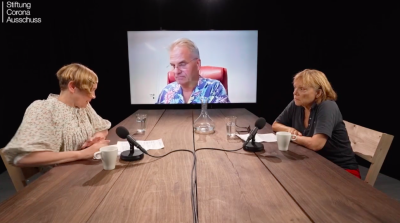
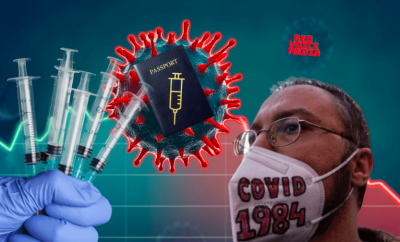


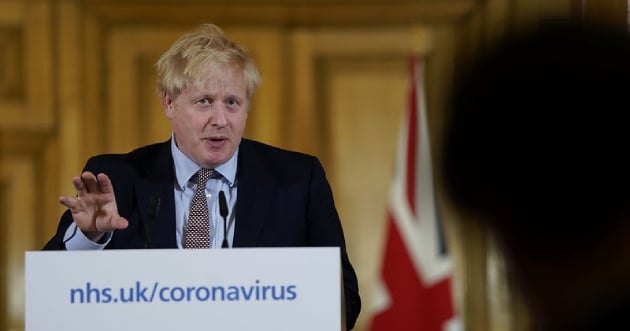
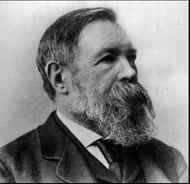
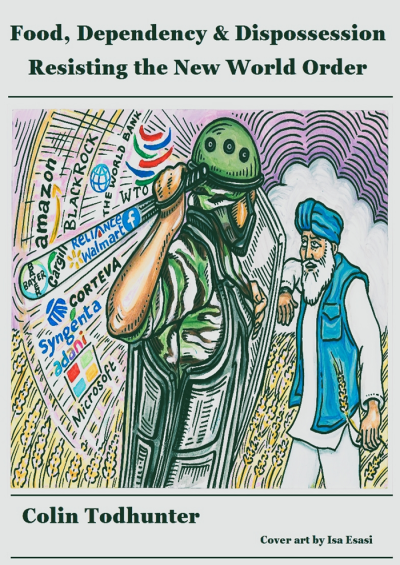 Read Colin Todhunter’s e-Book entitled
Read Colin Todhunter’s e-Book entitled